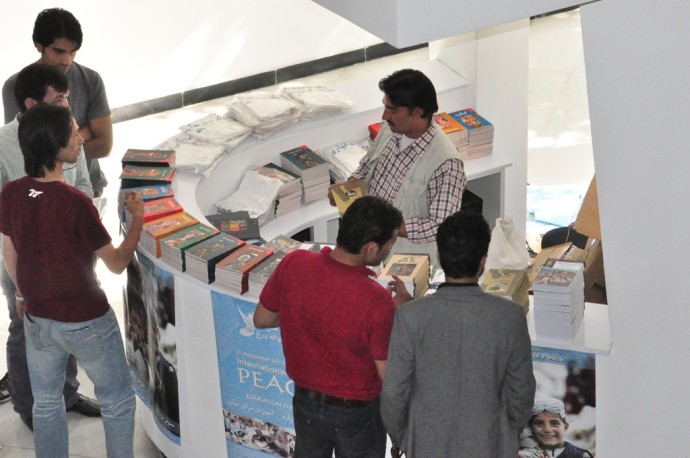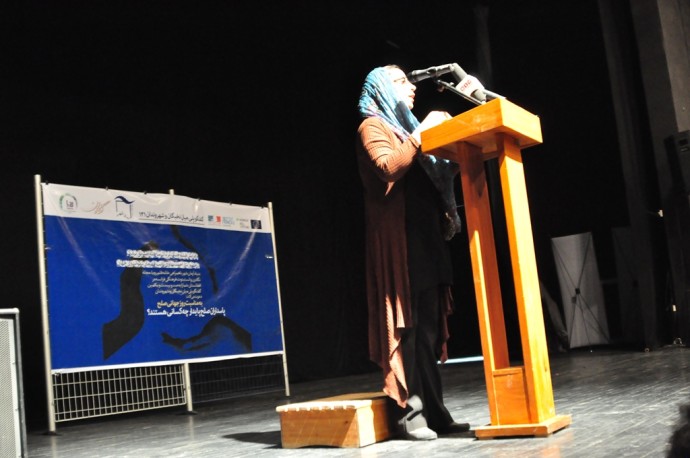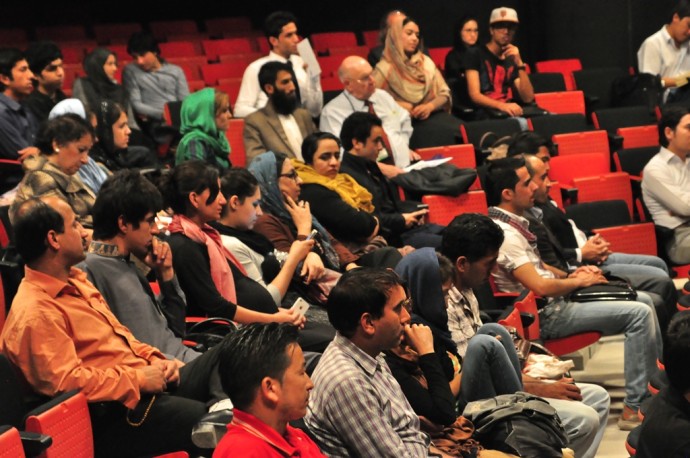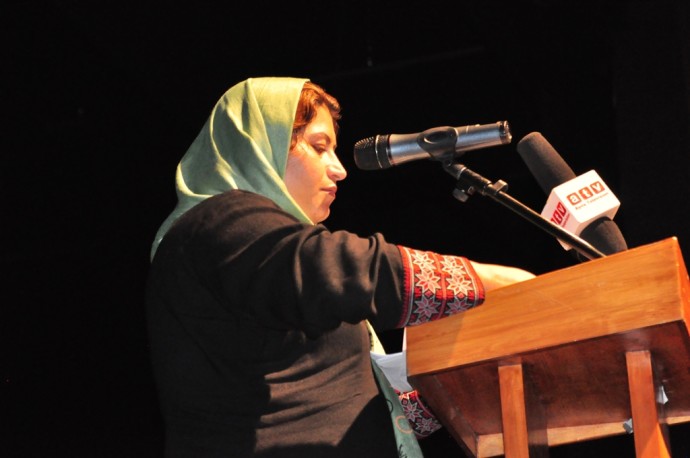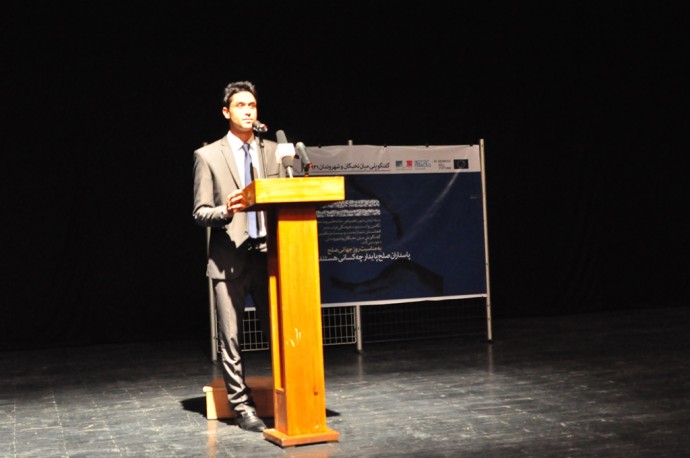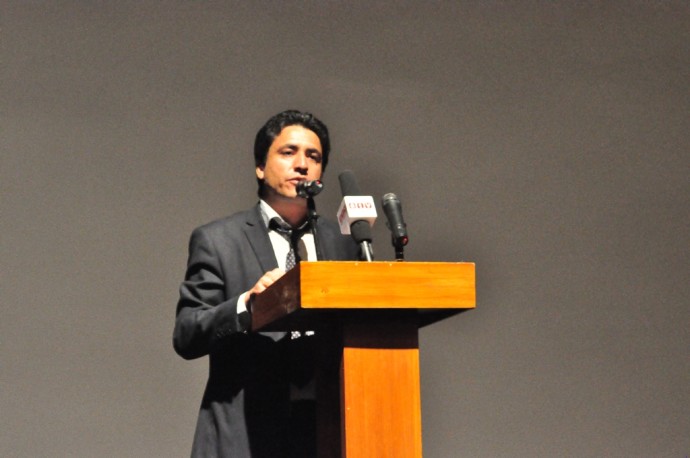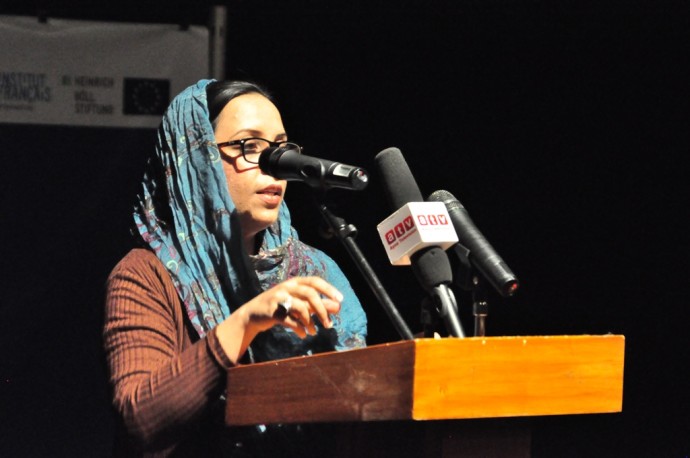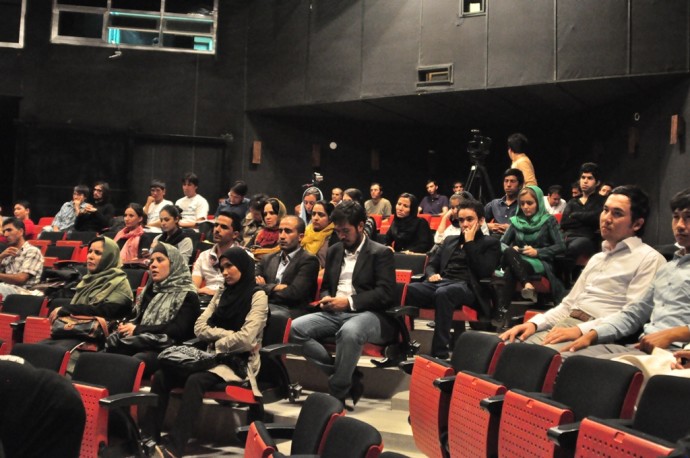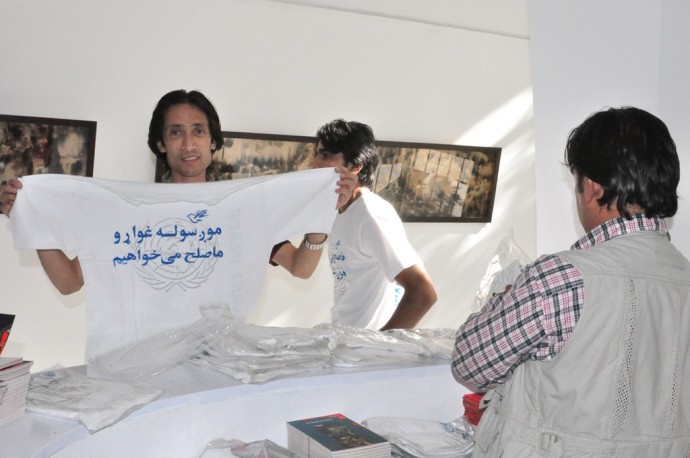121st “Goftegu – a bridge between the elite and the citizens – public dialogue of Armanshahr Foundation was held, in collaboration with Roya Film House and Negah-e Zan Institute, at the French Institute Afghanistan (IFA) in Kabul. Entitled ‘Who are protectors of sustainable peace?’ the meeting was held on 19 September 2013 to mark the International Day of Peace; a large number of students, academics and cultural activists participated.
Ms Roya Sadat, a co-founder of the Women’s International Film Festival-Herat, was the first speaker. She referred to the film festival as one of the peace-seeking whispers in Afghanistan and reasoned that women are the principal ambassadors of peace in this country. She said: If we consult history, we will notice that women have not been involved in any war worldwide. That indicates that women seek peace with everything at their disposal. This is not taken note of in Afghanistan. Women must show that we really exist and how influential our presence in a society can be.
Ms Sadat’s speech was mainly concerned with the women’s film festival. She reported that one of the main features of the festival was the honorary involvement of a number of women in organising it. Armanshahr Foundation and Roya Film House organised the festival without any financial aid. A number of other civil institutions and media gradually came to realise the significance of the festival and financed its various sections.
Ms Sadat hoped that filmmakers and civil institutions would support the festival in the future and she outlined the problems encountered in the first festival, e.g. such problems as lack of professional projectors, screens as well as chairs and proper theatres.
The second speaker was Mr Nesar Ahmad Bahawi, the runner-up in the Taekwondoo world competitions, who came with a message of peace. He congratulated the Afghanistan national football side for ranking first in the south-Asian competitions and pointed out the great joy of the people, who took to the streets to celebrate without consideration for ethnic and lingual issues.
We have to think of ways of establishing a sustainable peace when we notice scores of people killed every day, said Mr Bahawi, adding: It is hard to achieve a lasting peace when we use violence to treat young children. We need a collective effort to achieve peace and we have to begin with ourselves and in our families. It is difficult to achieve peace if we do not believe in it.
The last speaker, Ms Homira Saqeb, editor of Negah-e Zan magazine, said: Peace as I wish to discuss it today is not the same as what most people have in mind. What most people know as peace is nothing but a ceasefire. However, I wish to discuss a social peace and the role that women can play in a social peace and peace-building process.
She went on: Women’s rights have become an extremely political issue in the last few years and thus encountered the patriarchal policies as well as the prevailing political mentality and power. That is the reason why women’s organisations cannot strongly manifest themselves in practice.
Ms Saqeb pointed out two stages for women to enable them to play a role in the social peace process: awakening and capacity building. If those stages are completed successfully, they can then be aware of their own rights and defend the rights of other women as well as the social groups and social minorities. Empowering women needs action, i.e. women should try to take practical action to bring realisation to the process of social peace in Afghanistan.
Pointing out the importance of ongoing talks between the social groups, she argued that women can play the main role as mediators and raise the degree of tolerance toward different groups. Women should be seen, should be heard and be allowed to take part in the administration of the society. Women’s groups should try to be represented on the domains of power.
In the second part of the meeting, the Opium War was screened. The film is made by Seddiq Barmak, the first Asian winner of Golden Globe. Its topic is war and humans living under the consequences of war. Even their houses are made of warfare. They take shelter under the remnants of a Russian tank and are occasionally targeted by American drones.
When a helicopter crashes near the residence of a family, two American soldiers join the family, who earn their living by planting and selling opium. The scenes show how the two soldiers gradually enter a closer relationship with the family, then work on the farm and receive food as well as the permission to consume drugs.
The film’s title shows its attention to the war, be it with the British or the Russians, or the violence of the Taleban and Pakistani soldiers in Afghanistan’s war today; a war that has forced a large number of victims on the people.
The title of the Goftegu was: Who are the protectors of sustainable peace?
121st Goftegu of Armanshahr was held in collaboration with Roya Film House, Negah-e Zan magazine, and French Institute Afghanistan
In her speech with the title of ‘Women’s role in peace building’, Homeira Saqeb, editor of Negah-e Zan in Afghanistan, referred to women as the principal supporters of peace
Nessar Ahmad Bahawi, Taekwondoo world runner-up champion, gave a message of peace
The film ‘Opium War’ by Mr Seddiq Barmak was screened. The Goftegu moderator said: We are living in a country where we have to watch a film with the topic of war to mark the International Day of Peace.
Ms Roya Sadat made her speech with the title of ‘Role of International Women’s Film Festival & Peace’
The 1st ‘Women’s International Film Festival-Herat’ was also reviewed. The cal for the 2nd Festival will soon be published.
The programme was sponsored by Heinrich Böll Foundation and the European Union.

